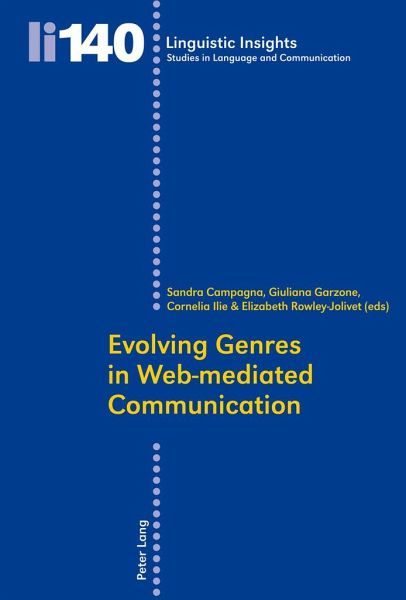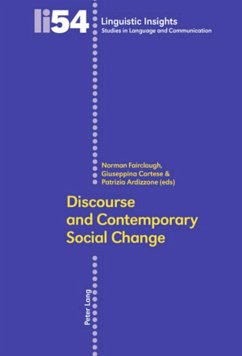
Evolving Genres in Web-mediated Communication
Versandkostenfrei!
Versandfertig in 6-10 Tagen
116,90 €
inkl. MwSt.

PAYBACK Punkte
0 °P sammeln!
This volume explores genres in Web-mediated communication in a discourse-analytical perspective, focusing in particular on genre change and evolution under the pressure of technological renewal, the availability of new affordances, and the consequent emergence of new generic conventions that challenge traditional genre theory. The chapters are organised in an ideal progression from websites and more 'traditional' Web applications to Web 2.0 communicative platforms, characterised as they are by user participation and user-generated content, focusing in the final section on blogging and microblo...
This volume explores genres in Web-mediated communication in a discourse-analytical perspective, focusing in particular on genre change and evolution under the pressure of technological renewal, the availability of new affordances, and the consequent emergence of new generic conventions that challenge traditional genre theory. The chapters are organised in an ideal progression from websites and more 'traditional' Web applications to Web 2.0 communicative platforms, characterised as they are by user participation and user-generated content, focusing in the final section on blogging and microblogging as the applications that are most representative of the properties of the new platforms. In all chapters the starting point is an awareness of the need to renew or adapt existing analytical tools to make them applicable to the new objects of investigation.














